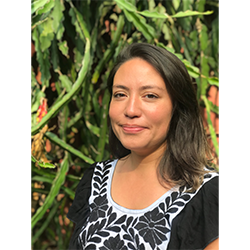LACS | Milpa Ecologies: Transgenerational Foodways in Tlaxcala, Mexico

When:
Tuesday, April 9, 2024
12:30 PM - 2:00 PM CT
Where: Crowe Hall, 1-132, 1860 Campus Drive, Evanston, IL 60208 map it
Audience: Faculty/Staff - Student - Public - Post Docs/Docs - Graduate Students
Cost: 0
Contact:
Margaret Sagan
(847) 467-1131
lacs@northwestern.edu
Group: Latin American and Caribbean Studies
Co-Sponsor:
Center for Native American and Indigenous Research (CNAIR)
Category: Academic, Social, Lectures & Meetings, Multicultural & Diversity, Environment & Sustainability
Description:
Lunch will be served at this event, which is co-sponsored by the Center for Native American and Indigenous Research (CNAIR) and the department of Anthropology.
Using a case study that melds archaeology and ethnography in Tlaxcala, Mexico, Keitlyn Alcantara will provide an example of how campesinos in Tlaxcala have used place-based foodways to transmit belief systems that resist dominant frameworks of power across time. Foodways are a site of daily engagements with the full food cycle and can be used to concretize dominant systems of power (e.g. industrial agriculture). But they can also be used to build counter systems, like in the example of milpa agriculture. This case study demonstrates how key ecological philosophies have served as effective and resilient adaptive strategies from which to respond to shifting threats across time—from Aztec and Spanish colonialism to contemporary resistance to neoliberalism.
Keitlyn Alcantara is an Assistant Professor of Anthropology at Indiana University.